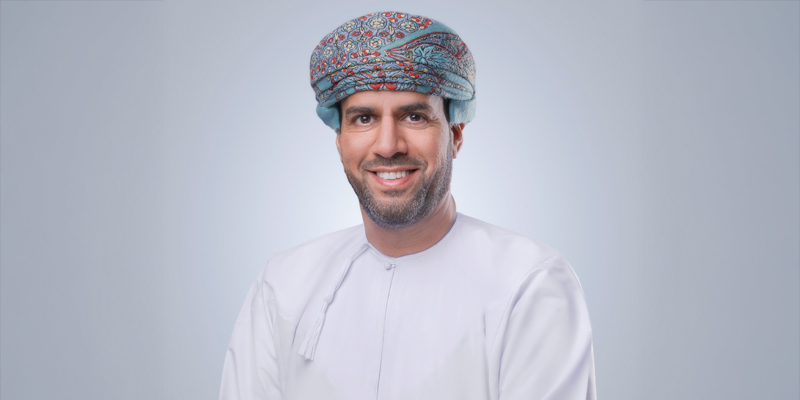
29 Apr Interview with Mr. Said Al Mandhari, CEO of ITHCA Group, Sultanate of Oman
JT: How does ITHCA Group align its investment strategy with Oman’s Vision 2040 to accelerate digital transformation and technological innovation?
Al Mandhari: ITHCA Group was established by the Oman Investment Authority (OIA) in late 2019 as its strategic investment arm for the technology and telecom sectors. Our mandate is to consolidate and optimize OIA’s assets, create synergy among portfolio companies, and drive a strategic investment framework that boosts the sector’s GDP contribution and creates jobs. Our strategy focuses on strengthening existing assets while identifying new opportunities that align with Oman Vision 2040. ITHCA’s portfolio is built on three pillars: The first is infrastructure—the foundation of technology development. We’ve made major investments in Oman Broadband, expanded tower-sharing initiatives, and are actively developing space communications, submarine cables, and data centers. Our subsidiary, Space Communication Technology (SCT), is leading the launch of Oman’s national satellite, serving various telecom stakeholders. The second pillar is digital transformation and cloud services. In partnership with the Ministry of Transport and Communications, we’re bridging digital gaps by managing and commercializing government digital services through close collaboration with local companies. The third pillar—emerging technologies—is the most dynamic. While the first two pillars build the tech foundation, this one focuses on scaling innovation. We’ve invested in five VC funds to support early-stage companies and directly backed 14 growth-stage firms. This lifecycle approach allows us to nurture startups locally and then help them scale into the GCC and beyond. We’re also developing strategic projects in high-impact sectors. So far, we’ve launched five initiatives: a semiconductor design company in partnership with a U.S. firm; applied AI capabilities focused on real-world solutions; IoT with proprietary IP developed locally; 3D printing to shift from low- to high-skill employment; and drone manufacturing, where we’ve launched our first production lines. In parallel, we continue investing in software development and cybersecurity. Our ultimate goal is to build globally competitive Omani companies while creating high-value jobs for youth. Technology, to us, isn’t just another sector—it’s a key enabler of Oman’s economic transformation and a cornerstone of Vision 2040.
JT: What steps is ITHCA taking to enhance Oman’s cybersecurity ecosystem, and how is it preparing for evolving cyber threats?
Al Mandhari: Cybersecurity was not initially considered a new industry, as existing investments were already in place. However, we are now focusing on enhancing this sector through direct investments, complementing and strengthening what has already been built. While cybersecurity in Oman exists, it has yet to reach the scale and standards we aim for. Our approach is to collaborate with and empower existing entities to develop stronger capabilities.
JT: How is ITHCA Group facilitating the expansion of Oman’s telecom infrastructure, including 5G deployment and interconnection hubs?
Al Mandhari: We redefined telecom infrastructure in Oman by introducing open-access networks, starting with Oman Broadband, allowing operators to compete on service rather than infrastructure. We then established Oman Tower Company (OTC) with international and local investors, further expanding open-access infrastructure. This model enabled new operators to enter the market without owning infrastructure, improving service quality and fostering competition. With OTC and Oman Broadband now mature and self-sustaining, ITHCA Group is divesting its stakes, including last year’s 49% sale in Oman Broadband. These proceeds will be reinvested in emerging technologies to further develop Oman’s digital ecosystem.
JT: How does ITHCA Group collaborate with the government and private sector to enhance Oman’s digital landscape, and what opportunities exist for Japanese investors to contribute to the development of Oman’s ICT sector?
Al Mandhari: A key mandate for us is attracting foreign technology investments, particularly from Japan, to bridge gaps in Oman’s tech sector. Rather than reinventing the wheel, we seek to leverage Japan’s advanced technologies. We offer Japanese companies two expansion paths: establishing operations in Oman through manufacturing, design, or development, or using Oman as a regional hub. ITHCA Group is the ideal partner, not only facilitating market entry but also co-investing to ensure success. We are committed to supporting Japanese firms and welcome discussions on how we can drive regional expansion together.
JT: What are ITHCA Group’s key priorities for the next five years and how do you envision its role in shaping Oman’s digital economy in the long run?
Al Mandhari: Technology is the world’s fastest-growing sector and largest employer. Our priority is investing in high-value technologies that align with our mandate, capitalize on Omani talent, and leverage our strategic location for interconnectivity. Over the next five years, ITHCA Group will focus on AI and data hubs, driving innovation and strengthening Oman’s competitive advantage.
JT: Do you have any closing remarks for our readers who are considering visiting or investing in Oman?
Al Mandhari: I invite Japanese companies to explore opportunities in Oman. While our market may be smaller, Oman offers two key advantages. One is skilled human capital. We have a strong talent pool recognized across the region. Second is our strategic location making us a prime logistics hub with excellent sea and air connectivity. I look forward to engaging with Japanese technology firms to build lasting partnerships.
